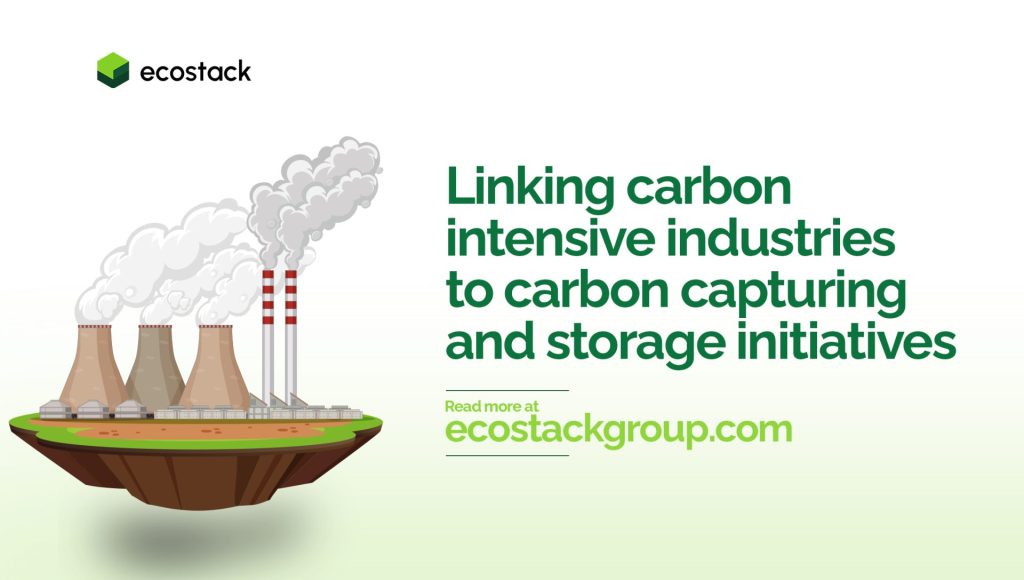Industries in Africa have experienced a concerning rise in high carbon emissions over recent years, attributed to the ongoing process of urbanization and development in specific regions. With relatively relaxed carbon emission regulations in place across the continent, substantial efforts must be undertaken to safeguard our planet’s future.
Fortunately, both individual industries and organizations can play a pivotal role in striving for a net-zero carbon footprint. One particularly effective approach involves engaging in carbon credit trading.
The carbon credit market acts as a crucial bridge between carbon-intensive industries and initiatives centered around carbon capture and storage (CCS). And now, introducing ECOSTACK, a pioneering climate tech startup dedicated to combatting climate change. This innovative company is committed to aiding high-emission enterprises in achieving their sustainability objectives. ECOSTACK’s strategy revolves around the implementation of a cutting-edge carbon credit platform that enables seamless monitoring, tracking, and trading of offsets.
Subsequent sections of this article will provide a comprehensive explanation of how the system functions and highlight the user-friendly nature of the process.
Carbon intensive industries
They are sectors that rely heavily on fossil fuels and produce significant amounts of carbon(di)oxide as a result of their operations. This sector includes power plants, manufacturing, and transportation.
Carbon capturing and storage (CCS) initiative
They are projects aimed at reducing carbon emissions by promoting sustainable practices and addressing climate change. These projects can include initiatives like reforestation, renewable energy installations, or energy efficiency improvements. The idea is to balance out the carbon emissions produced with activities that offset or negate those emissions, contributing to overall environmental sustainability.
Carbon credit market
The market for carbon credits is a platform that enables businesses to purchase and sell permits, or credits, that correspond to a certain level of greenhouse gas emissions. Companies can earn carbon credits by lowering their emission standard, which they can then sell to other businesses or people who want to offset their emissions. Individuals, businesses, or organizations can make up for their emissions by funding initiatives that cut back on or sequester a comparable volume of carbon or other greenhouse gases from the environment. A dependable platform is offered by ECOSTACK so that this transaction can be completed without a hitch.
How are carbon credits generated?
Depending on how much carbon dioxide carbon capturing and storage (CCS) projects store and capture, they can produce carbon credits. These credits reflect a measurable reduction in emissions.
what carbon trading system does Ecostack permit?
The idea is to reduce overall carbon emissions by putting a price on carbon pollution. Here are the systems that work with Ecostack;
- Cap and trade system
- Voluntary carbon markets
- Offset projects
- Verification and certification
- Accessible globally.
Cap and trade systems
In this system, a regulatory body establishes a cap on the overall greenhouse gas emissions that industries are allowed to produce. Companies receive emission permits—also known as carbon credits—by their emission goals. A company may sell its extra credits to other businesses whose emissions are more than their allotted limits if it emits less than the amount allotted to it.
Voluntary carbon markets
Voluntary carbon markets exist in addition to cap and trade regulations. These enable businesses or people to buy carbon credits voluntarily as part of their efforts to reduce their carbon footprint.
Offset projects
Through initiatives that lower or eliminate greenhouse gas emissions, carbon credits are produced. These endeavors could involve planting new trees, developing sustainable energy sources, capturing landfill methane, and more. When these initiatives reduce emissions, they produce carbon credits that can be exchanged for money on the market.
Verification and certification
Carbon credits are frequently the subject of verification and certification procedures to guarantee their integrity. The emission reduction projects are evaluated by unaffiliated third parties to make sure they adhere to strict guidelines.
Accessible globally
Ecostack operates on a global scale, engaging in international business operations. In its pursuit of achieving emission reduction goals, organizations from different countries have the opportunity to participate, buy, and sell carbon credits through the platform.
How does ECOSTACK make sure that projects have an actual impact?
We accomplish this goal by employing a rigorous vetting process. We partner with fully independent verification entities like VERRA and GOLD STANDARD to verify the legitimacy of these initiatives. Once the evaluation is completed and the project is deemed deserving, these organizations are provided with credits and are permitted to engage in trading on our platform.
The actual impact of a project is evaluated when it first joins the platform and again after a few months have passed.
Why should you use Us?
- Our platform is transparent and every data is secured
- Our platform is one of the early pioneers in the carbon trading market
- Our platform is trusted by key industry players
- Our platform is recognized by standard verifying bodies
- We provide a comprehensive report on performance over time
- We vet every project registered on the platform
- We only display standard projects on our marketplace.
Conclusion
ECOSTACK addresses the transparency gap in the African carbon credit market by furnishing transparent and dependable offsets to both local and global purchasers.

